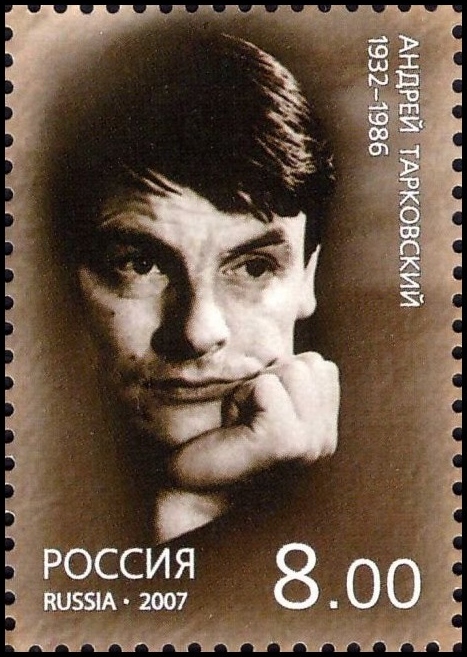Andrei Tarkovsky
 Andrei Arsenyevich Tarkovsky (, ; 4 April 1932 – 29 December 1986) was a Soviet of Russian nobility, and with mixed Polish, Romanian and Russian ancestry on his paternal side; his nationality remained Soviet throughout his life, even during his last years in exile.}} film director and screenwriter of Russian origin. He is widely considered one of the greatest directors in cinema history. His films explore spiritual and metaphysical themes and are known for their slow pacing and long takes, dreamlike visual imagery and preoccupation with nature and memory.
Andrei Arsenyevich Tarkovsky (, ; 4 April 1932 – 29 December 1986) was a Soviet of Russian nobility, and with mixed Polish, Romanian and Russian ancestry on his paternal side; his nationality remained Soviet throughout his life, even during his last years in exile.}} film director and screenwriter of Russian origin. He is widely considered one of the greatest directors in cinema history. His films explore spiritual and metaphysical themes and are known for their slow pacing and long takes, dreamlike visual imagery and preoccupation with nature and memory.Tarkovsky studied film at the All-Union State Institute of Cinematography under filmmaker Mikhail Romm and subsequently directed his first five features in the Soviet Union: ''Ivan's Childhood'' (1962), ''Andrei Rublev'' (1966), ''Solaris'' (1972), ''Mirror'' (1975), and ''Stalker'' (1979). After years of creative conflict with state film authorities, he left the country in 1979 and made his final two films—''Nostalghia'' (1983) and ''The Sacrifice'' (1986)—abroad. In 1986, he published ''Sculpting in Time'', a book about cinema and art. He died later that year of cancer, a condition possibly caused by the toxic locations used in the filming of ''Stalker''.
Tarkovsky was the recipient of numerous accolades throughout his career, including the FIPRESCI prize, the Prize of the Ecumenical Jury and the Grand Prix Spécial du Jury at the Cannes Film Festival in addition to the Golden Lion at the Venice Film Festival for his debut film, ''Ivan's Childhood'' as well as the BAFTA Film Award for ''The Sacrifice''. In 1990, he was posthumously awarded the Soviet Union's prestigious Lenin Prize. Three of his films—''Andrei Rublev'', ''Mirror'', and ''Stalker''—featured in ''Sight & Sound'' 2012 poll of the 100 greatest films of all time. Provided by Wikipedia
1
2
3
4
5
6
7
8